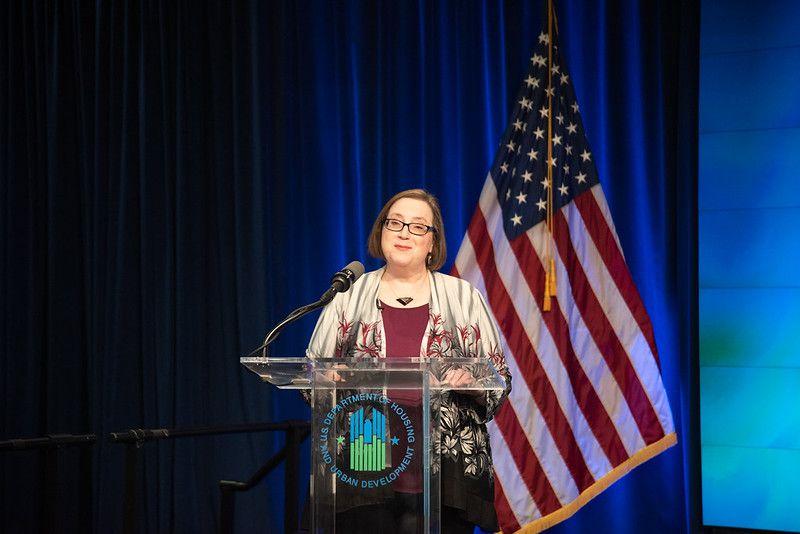FHA Loan Calculator
See what you can afford with our free FHA mortgage calculator, which includes taxes, insurance, and MIP for a full monthly payment estimate.
Tax & Insurance
Payment $3,455
| Principal & Interest | $2,247 |
| Property Tax | $833 |
| Home Insurance | $208 |
| Estimated PMI | $166 |
Income Benchmarks
| Housing Ratio | |
|---|---|
| 25% | $166,000 |
| 35% | $119,000 |
| 40% | $104,000 |
| ~ Allowable Debt |
|---|
| $2,490 |
| $800 |
| $270 |
Loan $407,000
| Purchase Price | $500,000 |
| Down Payment • 20% | $100,000 |
| Total Mortgage Payments | $868,705 |

What Is an FHA Loan?
An FHA loan is a mortgage insured by the Federal Housing Administration, designed to help more people qualify for homeownership, even with lower credit scores or smaller down payments.
Key Features:
- Down payments as low as 3.5%
- Credit scores as low as 580 may qualify
- Flexible debt-to-income (DTI) limits
- Mortgage insurance required
Pros and Cons of FHA Loans
Before deciding on an FHA loan, it’s important to weigh the benefits and limitations to see if this option is the right fit for your financial situation.
Pros
- Low Down Payment: Only 3.5% down is required if your credit score is 580 or higher, ideal for first-time homebuyers or those with limited savings.
- Flexible Credit Requirements: FHA loans allow credit scores as low as 500 (with a 10% down payment), making homeownership more accessible.
- Gift Funds Allowed: You can use gift money from family or close friends for your down payment or closing costs.
- Competitive Interest Rates: Despite lower credit requirements, FHA rates are often preferable to conventional loans.
- Assumable Loans: FHA loans can be transferred to a qualified buyer if you sell your home, potentially making your property more attractive when rates rise.
Cons
- Mortgage Insurance Required: FHA loans require both upfront and annual mortgage insurance premiums (MIP), which can add to your total cost over time.
- Loan Limits Apply: FHA loans are subject to regional loan limits. You may need a larger down payment if your loan exceeds those limits.
- Primary Residence Only: FHA loans are only available for homes you intend to live in, not for investment or vacation properties.
- Property Requirements: The home must meet certain condition standards and pass an FHA appraisal, which can limit your choices.
- MIP Can Last the Life of the Loan: Unless you put down at least 10%, you’ll pay mortgage insurance for the full loan term.
What Does Our FHA Loan Calculator Include?
Our FHA Loan Calculator provides a detailed monthly payment estimate that includes:
- Principal & Interest
- FHA Mortgage Insurance Premiums (Upfront & Annual)
- Property Taxes
- Homeowners Insurance (Hazard Insurance)
- Down Payment Amount
You’ll also get real-time updates based on your input, so you can see how changes to interest rates, down payment, or home price affect your monthly payment.
How to Calculate Your FHA Mortgage Payment
Your FHA mortgage payment is based on a mix of loan-specific and homeownership-related costs. The core components include your loan amount, interest rate, and loan term, but your actual monthly payment also reflects additional expenses like mortgage insurance, property taxes, and homeowners insurance.
Here’s what goes into the calculation:
Home Price
This is the agreed purchase price of the home. A lower home price means a lower loan amount, and potentially a more affordable monthly payment. Enter your expected purchase price into our FHA calculator to start estimating.
Down Payment
With FHA loans, the minimum down payment is just 3.5% if your credit score is 580 or higher. This upfront payment reduces the total amount you need to borrow. A larger down payment also lowers your monthly cost by reducing your loan balance and potentially your mortgage insurance.
Loan Term
FHA loans offer both 15- and 30-year options. A 30-year term results in lower monthly payments but more interest over time. A 15-year loan has higher monthly payments but less interest overall.
Interest Rate
This is the cost of borrowing money. Your rate depends on current market trends and your credit profile. Shorter-term loans typically come with lower interest rates than longer ones.
Mortgage Insurance Premium (MIP)
FHA loans require both an upfront and an annual mortgage insurance premium. The upfront MIP is 1.75% of the loan amount (usually rolled into the loan), while the annual MIP is split into monthly payments. These protect the lender and are required for most FHA borrowers.
Homeowners Insurance
This protects your home from damage, liability, or loss. Your lender will require proof of coverage. The cost is split across 12 months and added to your monthly payment.
Property Taxes
Your lender will usually collect property taxes along with your monthly mortgage payment. These vary based on where you live and are held in escrow to be paid on your behalf.
HOA Fees (if applicable)
If your home is part of a homeowners association, you’ll need to budget for monthly dues. These vary depending on your HOA and cover services like landscaping, maintenance, and shared utilities. (Note: HOA fees are not directly a part of your mortgage payment, but should be considered.)
FHA Loan Requirements in 2025
To qualify for an FHA loan, you’ll generally need:
- Credit Score: 580+ for 3.5% down, 500–579 with 10% down
- Down Payment: Minimum 3.5% of purchase price
- DTI Ratio: Up to 43% (sometimes higher with strong compensating factors)
- Property Use: Must be your primary residence
- Loan Limits: Vary by county (check your local limit)
FHA Loan Limits (2025)
Loan limits vary by county and property type. Most areas have a standard limit, but high-cost markets (like parts of California and New York) have higher limits.
>>> Check out our FHA Loan Limit Lookup Tool
Tips for Lowering Your Monthly FHA Mortgage Payment
- Improve your credit score before applying
- Make a larger down payment if possible
- Buy in a lower-tax area
- Compare lenders for better rates
- Avoid PMI with conventional loans (if you qualify)
Why Use Our FHA Loan Calculator?
The FHA Loan Calculator on WhatsMyPayment.com is built to provide the most accurate mortgage estimates possible. It accounts for:
- UFMIP
- FHA MIP
- Loan term & interest rate
- Taxes & insurance
- Accurate escrow and monthly totals
It’s a reliable way to estimate your real monthly payment and plan your homebuying budget with confidence.
If you’re ready to move forward with an FHA loan or would like help deciding if FHA is right for you and your family, please use our mortgage selector to find an FHA-approved lender.
FAQs About FHA Loans
1. Can I remove FHA mortgage insurance later?
Only if you refinance into a conventional loan. FHA loans require MIP for the life of the loan (unless you put down 10%, then it drops after 11 years).
2. Are FHA loans assumable?
Yes! FHA loans are assumable, meaning a future buyer may take over your low interest rate.
3. Can I use an FHA loan on a fixer-upper?
Yes, through the FHA 203(k) rehab loan program.
4. Can you use gift funds for an FHA loan?
Yes! FHA allows gift funds from approved sources like family members, employers, and government programs. However, gifts must be properly documented and truly gifts, no loans in disguise.
Relevant Articles:
- 2025 FHA Interest Rates
Explore today’s FHA mortgage rates, how they’re determined, and what factors influence the rate you may qualify for. - FHA vs. Conventional Loans: Which One is Right for You in 2025?
Not sure which loan is right for you? This side-by-side comparison breaks down key differences in credit, down payment, insurance, and more. - How to Calculate FHA Debt-to-Income Ratio?
Learn how your debt-to-income (DTI) ratio affects FHA loan approval and how to calculate yours before applying. - How to Remove FHA Mortgage Insurance
Discover how and when you can cancel your FHA mortgage insurance and what steps to take to potentially save on monthly payments.










